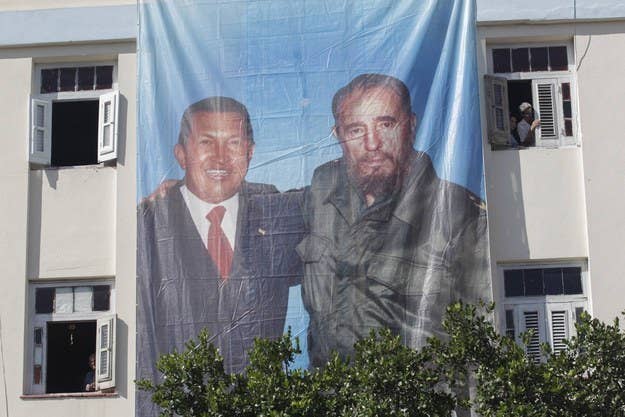
MIAMI — Venezuelans in South Florida had a huge victory to celebrate, but they were careful not to look too happy.
In the space of 24 hours, President Obama signed fresh sanctions into law against the regime of Venezuelan President Nicolás Maduro and normalized relations with Cuba. In doing so, Obama simultaneously ended the United States' longest-running feud in Latin America while quietly escalating another one.
This put the increasingly powerful group of Venezuelan expatriates in Miami in the awkward position of celebrating a hard-won victory even as their conservative Cuban-American allies mourned the end of the Castro regime's isolation. An overly exultant mood, or a failure to acknowledge the bitterness of the moment, might alienate their Cuban-American allies, whose political advocacy against the Castro regime has been a model for Venezuelan expatriates in the United States.
"Now I know what people mean when they say they have mixed feelings," said Ernesto Ackerman, who led the effort to lobby congress for sanctions, and who organized a last-minute celebration Thursday night in Miami. "But the very people who helped us pass the sanctions, the Cuban members of Congress, are suffering because of what Obama did to their country."
The quick succession of events on Wednesday and Thursday reflects an ongoing shift in Miami, long the hotbed of geopolitical maneuvering with regard to Latin America. The exiled Cuban opposition was once a mighty and radical political bloc with the power to sway presidential elections. But as Wednesday's historic thaw with Cuba showed, that power has faded significantly.
Meanwhile, the Venezuelans have coalesced into a genuinely formidable political force increasingly able to draw the attention of politicians on the American right. Most of those politicians — like Sen. Marco Rubio and Rep. Ileana Ros-Lehtinen — are Cuban-Americans for whom opposition to the Castros has been a foreign policy pillar.
David Smilde, a senior fellow at the Washington Office on Latin America, said the Venezuelans' success relies in large part on repurposing the political stances of those legislators. "They're not suddenly going to switch tactics or switch rhetoric," Smilde said. "Given the decline in popularity of the Cuba sanctions, Venezuela is a great replacement. It's a great new way for them to burnish their foreign policy credentials."
In Miami, the Venezuelans say they're happy to learn a lesson or two from their Cuban forebears. "The embargo [against Cuba] has had absolutely no effect," said Ackerman. That's why, he said, the Venezuelans have pursued targeted sanctions against the regime instead of generalized economic blockades. The new sanctions target the finances and overseas travel of Venezuelan officials involved in a violent crackdown against anti-Maduro protesters earlier this year.
"Venezuela's victory has to be achieved by Venezuelans," said Vidal Lorenzo, another expatriate opposition leader. "The Cubans were always a little too enchanted with the idea that the American government would solve their problems."
For Lorenzo, the failed Bay of Pigs invasion in 1961 is the perfect metaphor: The small invading force of Cuban exiles, believing they would receive air support from the Americans, was instead left alone and trounced by Castro's forces.
The Venezuelans, Lorenzo said, will not suffer the same fate. "We won't be stuck on the beach waiting for air support."
